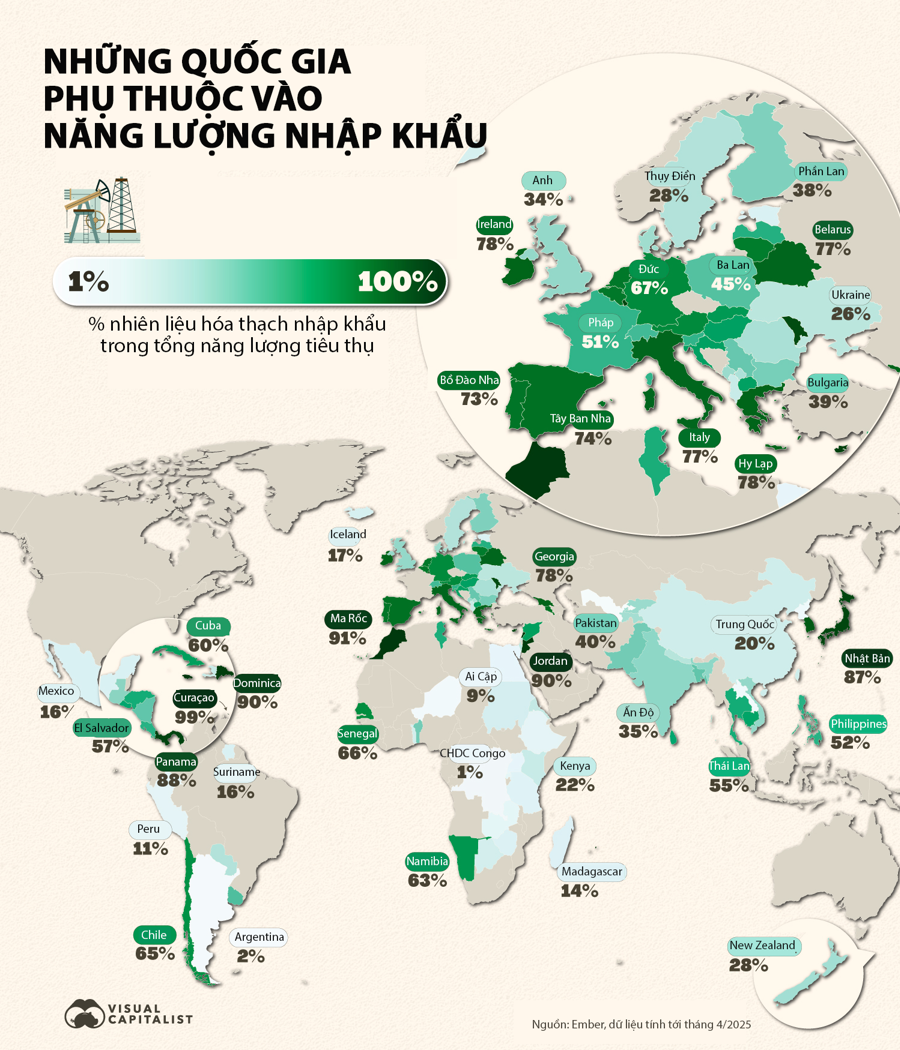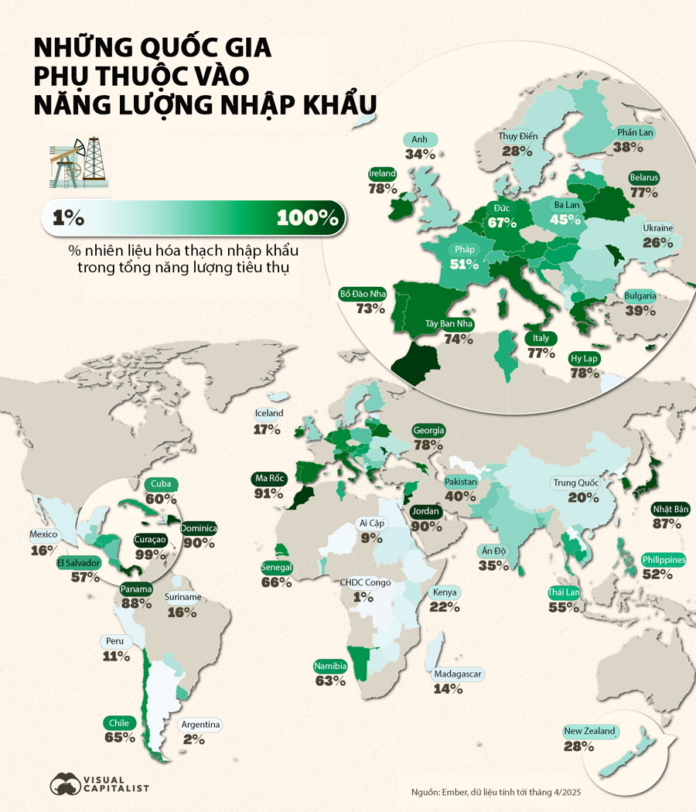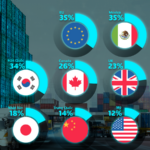Import accounts for nearly 70% of energy consumption in major economies such as Germany, Japan, and Italy. However, the countries most dependent on energy imports tend to be small island nations such as Gibraltar, a British territory. This nation relies entirely on imports to meet its domestic energy demands. Curaçao, a Caribbean island, follows closely with 99% of its domestic energy consumption derived from imports.

This list also includes several large European economies that have recently been striving to reduce their reliance on fossil fuels, particularly those sourced from Russia. Despite being major fossil fuel producers, China and India also feature on this list due to their massive industries and growing energy demands, which necessitate significant imports.
According to data from Ember, Vietnam is also a net importer of fossil fuels, with 34% of its domestic energy consumption attributed to imported fossil fuels.
Maximizing Energy Efficiency in Buildings with Saint-Gobain Isover Glass Wool
Saint-Gobain Isover glass wool can contribute to eight major areas – accounting for a significant 60% of the total points available across the four most popular green building rating systems.
Unlocking the Sun’s Power: Accelerating the Development of Rooftop Solar Energy for Self-Sufficiency
The Government Office has issued Notification No. 356/TB-VPCP dated July 30, 2024, conveying the conclusions of Deputy Prime Minister Tran Hong Ha on the formulation and issuance of a Decree regulating the mechanism and policies to encourage the development of rooftop solar power for self-consumption and a Pilot Scheme for offshore wind power development.
Revised Dry and Total 2024 Supply Plan Adjustments
With signs of a strong economic recovery increasing electricity demand, the Ministry of Industry and Trade has decided to adjust the electricity supply plan to keep up with the reality. Accordingly, the total electricity produced and imported in the country in 2024 is 310.6 billion kWh, of which 150.916 billion kWh will be in the dry season and 159.684 billion kWh will be in the rainy season.





















